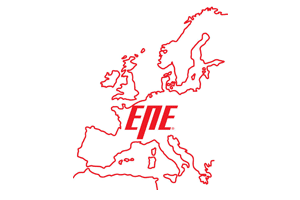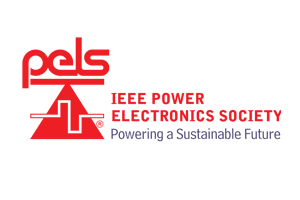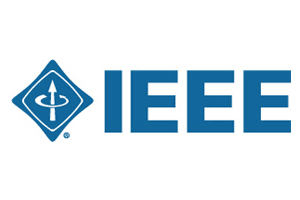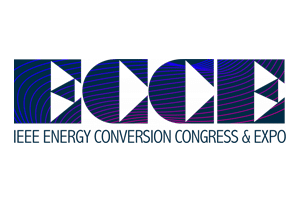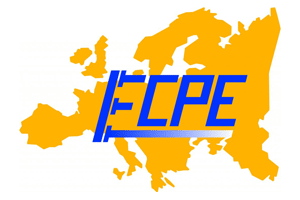The following tutorials are planned for Monday 4 September 2023 during the morning:
(Provisional Programme)
TUTORIAL N° 04
Morning
(09:30 – 13:00)
Focus Topic 2
Energy Islands
Room: 1.09 Vaerket
Solid State Transformers: Topologies, Use Cases, Design Considerations, and Challenges
- Ilknur COLAK, Schneider Electric/Secure Power, Grenoble, France
- Rafael MEDEIROS, Schneider Electric/Secure Power, Grenoble, France
- Ahmed MELIGY, Schneider Electric/Secure Power, Grenoble, France
Solid State Transformers (SST) are highly attractive both in industry and academia as they provide interface between medium-voltage AC (or DC) grids and low-voltage AC (or DC) grids and bring the benefits of modularity, flexibility, scalability, smaller footprint, less weight, bidirectional power flow and high-power quality to the units at the grid connection. Back in the 1990s they were attractive in the industry mainly to reduce weight and volume of the AC/DC converters in the rail applications. However, the interest in SST decreased due to its complex design and lower efficiency compared to conventional transformers.
In the last two decades the increasing DC applications in the area of Electric Mobility, Renewable Energy, Smart Grids, Datacenters and DC Microgrids brought back the interest to SST systems. Various topologies and control methods were proposed, and several demonstrators have been developed since then.
In this tutorial an SST overview will be shared with the audience and design criteria will be explained.
Tutorial 04: INFORMATION FILE
TUTORIAL N° 07
Morning
(09:30 – 13:00)
Room: 1.02 Havnen
Fundamentals and Advancements of Modern High-frequency Magnetic Components
- W.G. HURLEY, University of Galway, Ireland
- Ziwei OUYANG, Technical University of Denmark, Copenhagen, Denmark
- Zhan SHEN, Southeast University, Nanjing, China
- Hongbo ZHAO, Aalborg University, Denmark
All power electronic converters need magnetic components. With the widely use of wide-bandgap power electronic components, the design and analysis concept of integrating magnetic components into power electronic converters are challenges. In this proposal, we aim to introduce both fundamental and advancements of magnetic components, where we wish to introduce basic analysis tools and solutions for designing magnetic components. The challenges, opportunities and trends for magnetic components will be involved in this 3-hour tutorial.
Tutorial 07: INFORMATION FILE
TUTORIAL N° 17
Morning
(09:30 – 13:00)
Focus Topic 5
Emerging Power Electronic Devices
and Semiconductors
Room: 1.06 Broen
Challenges and Perspectives of Medium Voltage SiC MOSFETs (>6kV) in Power Electronic Converters
- Stig MUNK-NIELSEN, Aalborg University, Denmark
- Michael MØLLER BECH, Aalborg University, Denmark
- Jannick KJÆR JØRGENSEN, Aalborg University, Denmark
- Benjamin FUTTRUP KJÆRSGAARD, Aalborg University, Denmark
- Bjørn RANNESTAD, KK Wind Solutions, Ikast, Denmark
Reliable and sustainable green energy is one of the most important actions to combat climate change. In the research group at Aalborg University, we are funded and supported by three world-leading wind industry companies to conduct research on the use of advanced Silicon Carbide (SiC) power semiconductors (>6kV) for two-level medium-voltage power converters. According to our ongoing research project, we already see promising features of utilizing in future high-power (MW-level) energy conversion applications with increased 1-2% system-level efficiency, which can save hundreds of gigawatts of electricity for the world in the future.
During the tutorial presentations, the outcomes of our research will be shared. We will highlight the remaining challenges and our perspectives on using the advanced medium-voltage SiC technology. We will share insights from the demonstrated system where we have studied power module packaging, layout related energy dissipation, gate drivers, cooling, and magnetics, where capacitive couplings have been shown as the bottlenecks for the demonstrated medium-voltage system.
The summarized objectives of this tutorial are as follows:
- To share the motivation and perspectives for medium-voltage power converter systems enabled by the SiC MOSFETs.
- To provide the attendees with novel and state-of-the-art research knowledge on the applications of medium-voltage SiC MOSFETs.
- To share insights on system and component level challenges in utilizing the medium-voltage SiC MOSFETs.
Tutorial 17: INFORMATION FILE
TUTORIAL N° 19
Morning
(09:30 – 13:00)
Focus Topic 4
Electric Vehicles
Room: 1.04 Fakultetet
EV Charging: Power Conversion, Quality, and Digitalization
- Lin MA, Autel Netherlands B.V., Den Haag, The Netherlands
- Zian QIN, Delft University of Technology, The Netherlands
E-mobility is an essential part of the global carbon-neutral program. Besides batteries, EV charging is another enabling technology in E-mobility, which determines the charging time as well as the impact on the utility grid. Although EV chargers with power ratings from 1 kW to hundreds kW exist to fulfill the various charging demands, the charging power is going up and their installation is increasing quickly. To tackle these challenges, on one hand, advanced power electronics technologies are being developed to handle the high charging power, on the other hand, digitalization is introduced into EV charging to properly manage the charging networks with massive installations. Another challenge that has been overlooked for years but is creating more and more problems is the power quality issues of EV charging, including flickers, harmonics, supraharmonics, etc. In this tutorial, the state of the art of the above-mentioned topics will be reviewed and discussed.
Tutorial 19: INFORMATION FILE
TUTORIAL N° 26
Morning
(09:30 – 13:00)
Focus Topic 1
Renewable Energy Systems
and Power-to-X
Room: 1.01 Banen
Electrified Hydrogen Systems – Challenges and Opportunities
- Ahmed ABDELHAKIM, ABB Corporate Research Västerås, Sweden
- Thiago BATISTA SOEIRO, University of Twente, Enschede, The Netherlands
- Qianwen XU, KTH Royal Institute of Technology, Stockholm, Sweden
- Sjoerd BOSGA, ABB Corporate Research Västerås, Sweden
Decarbonization of major energy-consuming sectors is a top priority of the 2015 Paris Agreement and the Intergovernmental Panel on Climate Change (IPCC) climate change 2022 report. Perhaps the most promising strategy for addressing this challenge is the implementation of hydrogen production technologies. These are seen to be a solution for many sectors, including so-called hard-to-abate areas in which it can be used as a feedstock or directly as a fuel.
Hydrogen is the world’s cleanest energy source, with around 80 million tons currently being produced annually. Furthermore, production is expected to exceed 200 million tons by 2030, and 500 million tons by 2050, according to the Net Zero Scenario.
In this context, power electronics is expected to play an important role in the electrification of hydrogen systems, where different converter solutions, integration schemes, along with power management strategies and control methods can be properly utilized to accelerate the current and future plans for both hydrogen production and utilization.
The goal of this tutorial is to explore the power electronics-related challenges and opportunities in these electrified hydrogen systems. Such a goal will be reached by covering the following topics in this tutorial:
- Power electronics role in future hydrogen powertrains, in which both hydrogen production through water electrolysis and utilization in trains and vessels will be discussed.
- Considering one of the relevant applications for hydrogen as a feedstock, E-refineries will be explored, where the challenges and future trends in this industry using islanded micro-/nano-grids facilitated by multi-active-bridge converters will be discussed.
- This will then be enriched with some discussions around the control of renewable energy-fed hydrogen-based energy systems for isolated and grid connected applications.
- Finally, the safety-related aspects of hydrogen systems in a power electronics lab environment will be covered.
Tutorial 26: INFORMATION FILE

